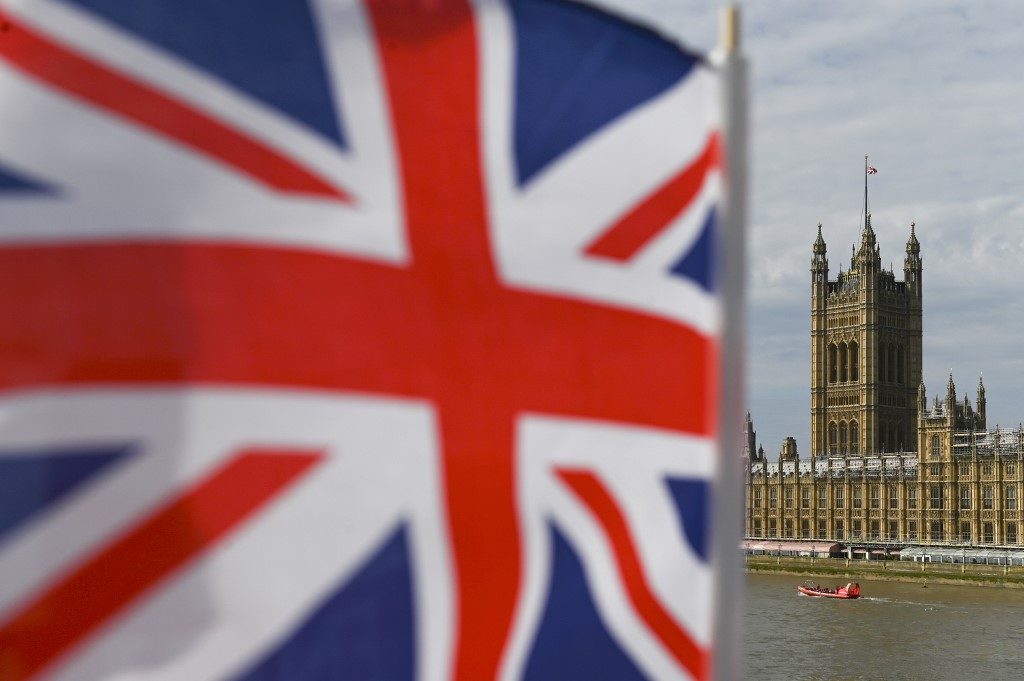SUMMARY
This is AI generated summarization, which may have errors. For context, always refer to the full article.

LONDON, United Kingdom – In billionaire-friendly Britain, where the global coronavirus outbreak has hit hard, the idea of making the wealthiest pay more tax to help economic recovery is gaining ground.
Mass unemployment, bankruptcies, and other potential shocks could hit the richest, but supporters of tax reform say they should still shoulder more of the burden.
Britain’s wealthiest have seen tens of billions of pounds wiped off their annual combined wealth – the first fall in a decade, according to the Sunday Times “Rich List.”
The respected ranking of the country’s 1,000 richest people found they had collectively lost £54 billion ($68 billion, 60 billion euros) in the last few months alone.
But it still calculated their combined wealth at £743 billion. On the list were 147 billionaires, 89 of them in London – the highest concentration in the world.
Inventor James Dyson, known for his bagless vacuum cleaners as well as recently relocating to Singapore, topped the list for the first time, with an estimated wealth of £16.2 billion.
“The general rule, despite the changing fortunes of individual rich folk, is that money continues to rain upwards,” said Rowland Atkinson, a University of Sheffield professor and author of Alpha City: How London Was Captured by the Super-Rich.
“So it seems clear that those with plenty will more than survive the economic crisis generated by COVID-19,” he wrote in an article on non-profit media platform The Conversation.
Austerity again?
Atkinson argues Britain’s wealthiest are “protected” by their connections to the ruling Conservative party and ability to tap government bailouts, as well as more questionable tactics.
Some billionaires have even been accused of trying to take advantage of public money during the health crisis via emergency government schemes and a loosening of regulations.
Greenpeace has criticized entrepreneur Richard Branson, who it said has not paid taxes in Britain for 14 years, for demanding a bailout to save his Virgin Atlantic airline.
Meanwhile, the specter looms large of another decade of austerity to mirror the period after the 2008 financial crisis when inequality rose and hit the poorest hard.
Prime Minister Boris Johnson’s government, reelected in December on a pledge to reduce regional inequalities, has spent tens of billions of pounds to cushion the virus fallout.
But the deficit will explode to nearly £300 billion in 2020 and its financing will be a headache for his party, which has traditionally been reluctant to tax the rich.
Johnson has suggested he will avoid excessive cuts to public services, given the backlash against the deeply unpopular austerity policies from 2010.
He is also seen as unlikely to target the state-run National Health Service (NHS), whose doctors and nurses he credits with saving his life in hospital from COVID-19.
NHS and other lower-paid frontline workers have been at the forefront of the fight against the pandemic, often paying with their lives.
‘Big new proposals’
“I think these kind of events lay bare many of the underlying issues that have been present for much longer,” said Arun Advani, a professor at the University of Warwick.
“The current government has shown that it is open to radical thinking to tackle the big questions now,” he added, pointing to government furlough schemes and state-backed loans.
“I’m optimistic they are willing to consider big new proposals on raising tax as well,” he told Agence France-Presse.
A YouGov poll in mid-May indicated 61% of Britons backed a wealth tax on those with net worths of over £750,000.
In a sign the idea is attracting increased attention, the Financial Times saw a record number of comments last month when it held a question-and-answer session on the topic.
Richard Murphy, from London’s City University, said the UK tax system was highly regressive because it targets income at almost 10 times the rate of wealth, benefiting the better off.
The tax expert conducted a study that found the government could raise up to £174 billion if it taxed wealth at the same rate as income.
That could more than fund the NHS’ annual budget of around £120 billion.
But Murphy suggested there were other ways the government could pick “low-hanging fruit,” including changes to income and capital gains taxes, allowances, and reliefs.
For Stanford University historian Walter Scheidel, the pandemic is precisely the kind of seismic world event that can spur change and reduce inequalities.
“The coronavirus, like other plagues before it, could shift the balance between rich and poor,” he wrote in a New York Times article in April, “Why the wealthy fear pandemics.” – Rappler.com
Add a comment
How does this make you feel?
There are no comments yet. Add your comment to start the conversation.